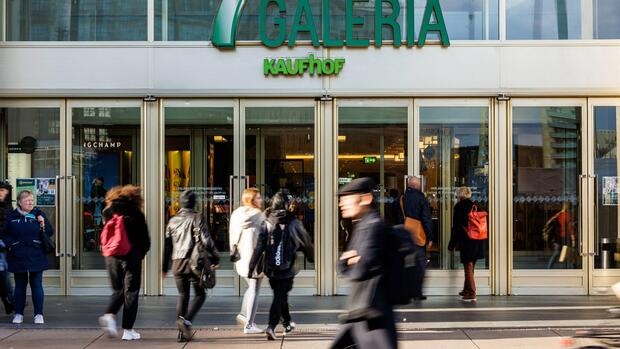New economic data can at least be seen as a ray of hope for the retail trade.
(Photo: AFP/Getty Images)
Dusseldorf Slowly declining inflation and the sometimes very lavish wage agreements have boosted the Germans’ mood for spending. This is signaled by the HDE consumption barometer for June, which has now increased for the eighth month in a row and, at 94.29 points, has reached its highest level since March 2022.
The barometer is based on a representative monthly survey of around 1,600 households; it is calculated by the Handelsblatt Research Institute (HRI) on behalf of the trade association HDE.
With the new data, there is growing hope that private consumption will stabilize in the coming months and that the retail sector will have the sharpest slumps behind it. According to official data, private consumption fell by 1.2 percent in the first quarter compared to the previous quarter.
Private households spent less on food and beverages, clothing, shoes and furniture than in the previous quarter. In addition, private households also bought fewer new cars.
In the books of the retailers there is a real minus of six percent for the first four months of the year compared to the same period last year. The decline in “specialist retailers with food” was particularly strong: eleven percent. On the other hand, the sales of retailers with textiles, clothing, leather goods and shoes increased by six percent in real terms.
>> Read here: Germany needs a policy for more growth
There are first signs of hope for an end to the downward spiral of inflation and reluctance to buy. According to the latest data for April, the Federal Statistical Office reported a slight plus: real retail sales rose by 0.8 percent compared to the previous month.
The propensity to buy increases – the propensity to save decreases
The reason for the overall weak development is persistently high inflation, which is destroying purchasing power. For May, the Federal Statistical Office calculated 6.1 percent inflation, which was still well above the long-term average, but was the lowest value since March 2022. Energy in particular, but also individual foods, have recently become significantly cheaper.
According to the HDE barometer, consumers’ propensity to buy rose slightly over the coming months, while concerns about further price increases eased somewhat. The propensity to save fell significantly – consumers apparently intend to put less money on the sidelines in order to be able to maintain their usual level of consumption despite the significantly higher price level.
Regardless of the recent improvement in sentiment, the HDE barometer and all of its components are still well below the pre-Corona values of 2019 – so there is still no talk of a return to normality.
>> Read here: Why Germany is in recession – four reasons
The real income trend has recently been clearly negative. In the first quarter, nominal wages increased by 5.6 percent compared to the same quarter of the previous year – and thus more strongly than at any time since the beginning of the time series in 2008. However, consumer prices rose by 8.3 percent in the same period, so that real wages increased official data fell by 2.3 percent compared to the same period last year.
The trend from 2022 is therefore continuing: the high inflation more than eats up wage increases for employees at the beginning of 2023.
However, the Kiel Institute for the World Economy (IfW) assumes that “by next year at the latest” nominal wages will rise much faster than consumer prices. “With a bit of luck, the real wage losses, which totaled around five percent between 2020 and 2022, could even be made up for,” says IfW expert Dominik Groll.
But even then one would be “still a long way away” from the pre-crisis trend – i.e. the real wage level that would be realistic without the pandemic and energy crisis. Germany will probably feel the economic consequences of the double crisis from Corona and the Ukraine war for a long time to come.
More: The Greens fail because of the fine art of realpolitik

